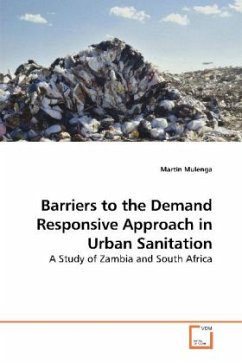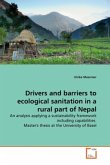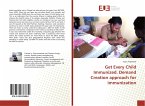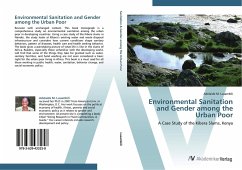This book is based on research findings from a study in Zambia and South Africa which aimed to investigate the challenges to the implementation of the demand responsive approaches in urban poor sanitation programmes. Over the years, countries in the South have faced enormous backlogs in the provision of sanitation services that have resulted partly from the use of inappropriate service approaches, such as supply-led ones, coupled with rapid urbanisation and population growth. To counter that, a number of development agencies such as the Water and Sanitation Programme have been advocating the use of the DRA as an effective way of improving service provision. The DRA is a methodology that allows demands of consumers as individuals and as a community to guide key investment decisions. A comprehensive review of literature was also undertaken to identify the complexity and apparent problems associated with the DRA methodology found by other researchers. The book identifies and discusses various obstacles that may hinder the implementation of the DRA in urban areas at both community and institutional level and provides recommendations on the best way forward.








